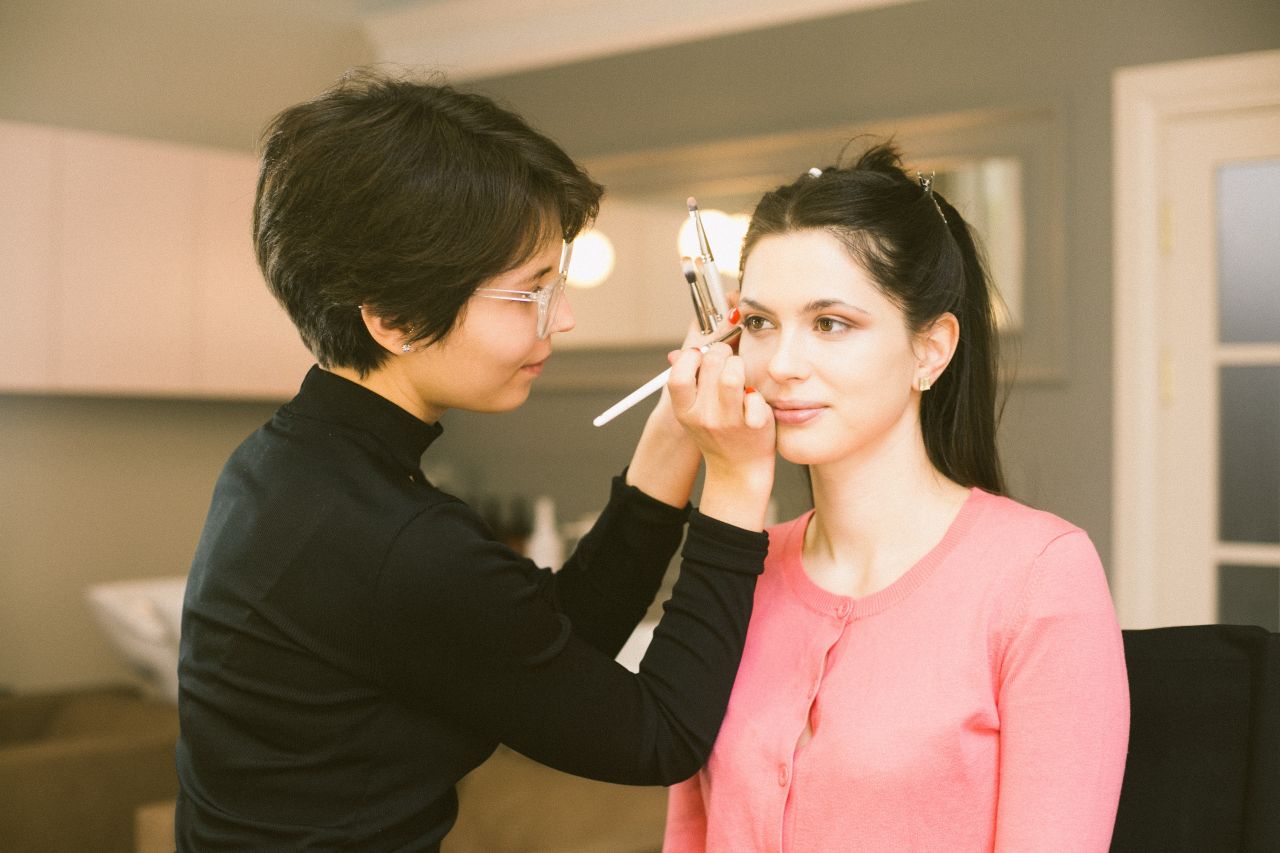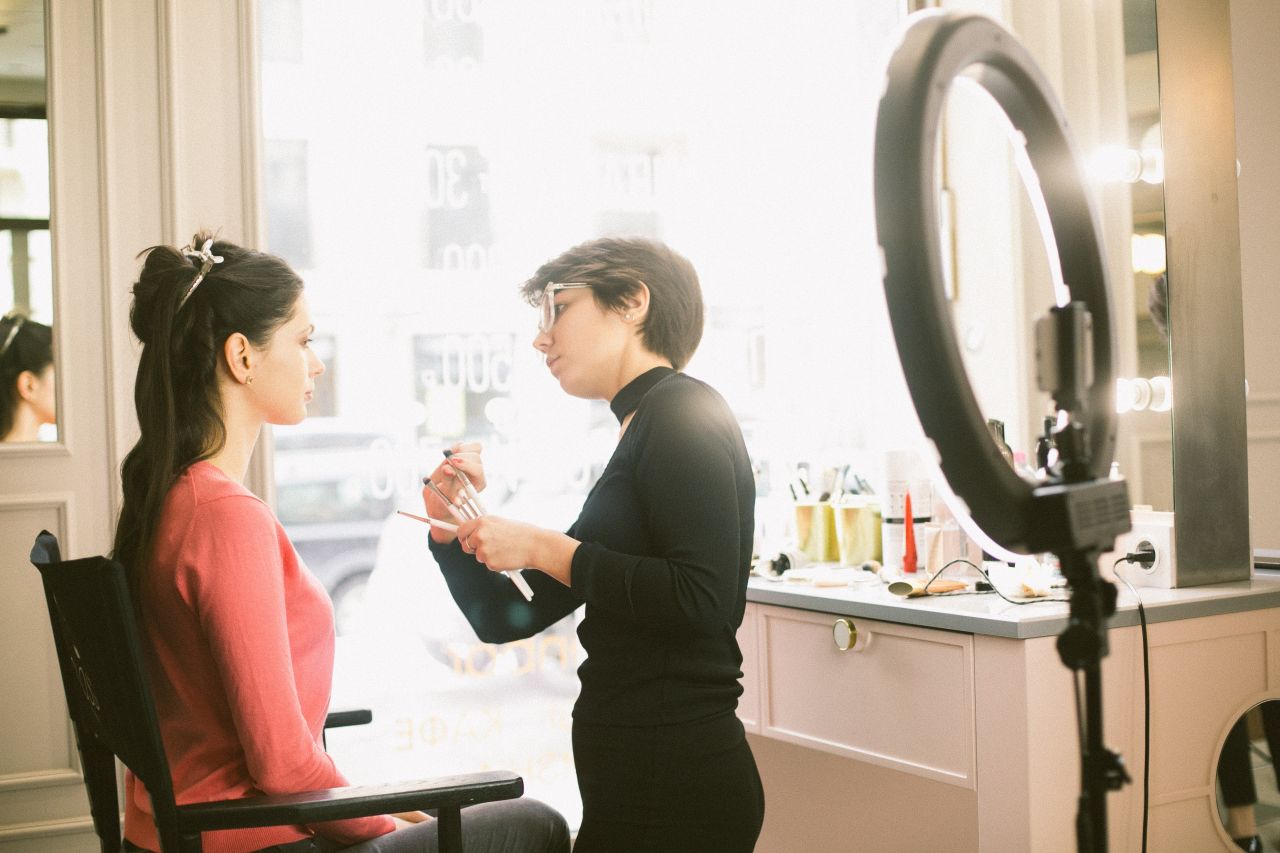Imagine waking up with perfectly defined brows, eyeliner, and lips each morning without applying makeup.
This dream is possible through permanent makeup, but the process requires maintenance over time.
Let’s explore what permanent makeup touch-ups are, why they are important, and how they help maintain a natural and lasting look.
Let’s get straight to the point
Permanent makeup offers convenience and confidence by enhancing brows, eyeliner, and lips without daily application, but it requires regular touch-ups to maintain colour and shape.
Factors like skin type, sun exposure, and lifestyle cause pigments to fade, making touch-ups essential every 1-2 years.
Aftercare, including sun protection and gentle skincare, helps prolong results. As skin ages, adjustments keep the makeup natural, with options for colour correction to address pigment shifts.
Clear communication with a skilled technician and budgeting for maintenance are crucial. With proper care and touch-ups, permanent makeup can remain vibrant and fresh, ensuring daily a polished, natural look.
Why Do Permanent Makeup Touch-Ups Matter?

Factors like skin type, lifestyle, and environmental exposure cause pigment in permanent makeup to fade over time. Touch-ups help maintain the desired look, ensuring the pigment stays vibrant, and the shape is defined.
Common Reasons For Pigment Fading
- Skin Type: Oily skin can cause pigment to fade faster.
- Sun Exposure: UV rays break down pigments over time.
- Healing Variations: Individuals heal differently, impacting how pigments settle.
The Touch-Up Process: A Necessary Step
After the initial permanent makeup procedure, clients usually return for a touch-up appointment within 4-8 weeks.
This allows the technician to perfect the colour and shape after the initial healing phase. Regular maintenance every 1-2 years is recommended, depending on personal preferences and lifestyle.
What is Permanent Makeup?
Permanent makeup, also known as cosmetic tattooing, is a method that enhances facial features by implanting pigments into the skin’s dermal layer.
Various methods, including micropigmentation, microblading, and shading, can create effects like fuller eyebrows, defined eyeliner, and natural-looking lip colours.
Although often called “permanent,” these enhancements require occasional touch-ups to maintain vibrancy and shape.
Key Benefits Of Permanent Makeup
Permanent makeup is popular for several reasons:
- Convenience: It saves time from daily makeup application.
- Consistency: Maintains a polished look even during physical activities.
- Confidence: Helps those with dexterity issues or vision impairment apply makeup flawlessly.
Procedures for Permanent Makeup Touch-Ups
Touch-ups are a vital part of the permanent makeup journey. Here’s a breakdown of the process:
1. Initial Consultation And Patch Test
- Before the procedure, a consultation and patch test determine the client’s suitability for pigments.
2. First Session: Application Of Pigment
- The pigment is applied to the brows, eyeliner, or lips using various techniques based on the desired outcome.
3. Healing And First Touch-Up
- A healing period of 4-8 weeks follows, during which the pigment settles. Clients then return for a touch-up to adjust the colour and shape.
4. Ongoing Maintenance
- Additional touch-ups every 1-2 years keep the makeup fresh and natural.
Factors Impacting the Longevity of Permanent Makeup
Several factors influence how long permanent makeup lasts. Let’s take a closer look:
1. Skin Type And Care Routine
- Oily skin can lead to quicker fading. Skincare routines involving exfoliants or strong acids can also affect pigment retention.
2. Environmental Factors
- Sun exposure causes the pigment to break down, leading to quicker fading. Using sunscreen can help prolong the pigment’s life.
3. Lifestyle And Activity Level
- Active lifestyles involving outdoor activities can lead to faster fading due to increased exposure to sun, sweat, and water.
4. Health And Medications
- Conditions like autoimmune diseases and medications can impact the body’s ability to retain pigment.
Common Types of Permanent Makeup Touch-Ups
Depending on the area treated, the touch-up process and frequency may vary:
Eyebrows
Brows are the most popular permanent makeup treatment. Techniques like microblading create hair-like strokes, while shading adds depth. Brow pigments fade over time, so touch-ups keep them defined.
Lips
Permanent lip colour provides a fuller, more even appearance. Touch-ups may be needed to maintain vibrancy, especially as natural lip colour can influence the pigment’s longevity.
Eyeliner
Permanent eyeliner enhances the lash line and adds depth to the eyes. Because this pigment is close to the eyes, a delicate touch-up ensures colour consistency and crisp lines.
Touch-Ups and Color Correction
For those with existing permanent makeup, touch-ups may require colour correction. Over time, pigments can shift to undesired tones due to skin undertones and environmental factors.
Colour Correction TechniquesNeutralisationn: Corrective pigments are applied to balance undesired colours, such as adding green to counteract red or yellow to neutralise blue.
- Layering: Applying the correct colour over a neutral base ensures a natural outcome.
- Shape Adjustment: Technicians may alter shape for better symmetry or style updates.
Essential Aftercare for Long-Lasting Results
Post-procedure care significantly impacts how well permanent makeup lasts. Here are some essential aftercare tips:
1. Avoid Sun Exposure
- Sunlight can cause pigments to fade faster. Use sunscreen and avoid prolonged sun exposure.
2. Keep The Area Dry And Clean
- Avoid excessive moisture around the treated area for the first few days to prevent infection and promote healing.
3. Use Gentle Skincare Products
- Avoid harsh exfoliants and acids near the area, as these can cause pigment loss.
4. Avoid Picking Or Scratching
- Itching and scabbing are normal; picking or scratching can disrupt pigment retention.
5. Follow Up With Your Technician
- Routine check-ins ensure adjustments can be made promptly, helping maintain the best results.
Handling Permanent Makeup as You Age
Aging can subtly affect the appearance of permanent makeup. The skin’s natural elasticity changes over time, which may influence the shape or appearance of brows, eyeliner, and lip colour.
Adapting Permanent Makeup To Age Gracefully
- Choosing Natural Colors: Opting for softer, more natural hues can create a timeless look.
- Avoiding Extreme Styles: Dramatic shapes may look out of place over time. A balanced style aligns well with aging skin.
- Regular Adjustments: Routine touch-ups allow small adjustments, keeping the makeup fresh and flattering.
Common Questions About Permanent Makeup Touch-Ups
1. Is A Touch-Up Just A Simple Appointment?
- Although called a touch-up, these sessions often involve more than just a minor adjustment. Technicians assess the healed result, making necessary changes to shape, colour, or density to meet client expectations.
2. Can All Permanent Makeup Be Corrected?
- Most permanent makeup can be corrected or altered, but some cases, especially involving poor initial application, may require laser removal before reapplication.
3. How Often Do Touch-Ups Occur?
- While initial touch-ups happen 4-8 weeks post-procedure, long-term maintenance is typically needed every 1-2 years.
4. What if I no longer like my permanent Makeup?
- A skilled technician can make adjustments in colour and shape. However, more dramatic changes may require removal and reapplication.
Expert Advice for Touch-Ups

Permanent makeup is an art form requiring skill and precision. When choosing a technician, consider these points:
1. Inspect Portfolios And Certifications
- Review examples of previous work and ensure the technician is certified in permanent makeup.
2. Communicate Clearly
- Ensure you convey your colour preferences, style, and expectations to your technician.
3. Consider The Long-Term Commitment
- Since permanent makeup can last for years, choose colours and shapes that will age gracefully with you.
4. Budget For Touch-Ups
- Remember that touch-ups are necessary for permanent makeup and should be factored into your overall investment.
Conclusion
Permanent makeup offers the convenience of a ready-to-go look, but it’s important to maintain it through regular touch-ups.
By keeping up with touch-ups, practising good aftercare, and consulting with a skilled technician, you can ensure your permanent makeup remains vibrant, fresh, and timeless for years to come.
Embrace the freedom of waking up beautifully daily, knowing that your brows, eyeliner, and lips are perfectly in place.
FAQs About Permanent Makeup
What Is Meant by Permanent Makeup?
Permanent makeup, also called a cosmetic tattoo or micropigmentation, is done with the use of a pen containing iron oxide that tattoos the skin and to create the look of makeup. A tattoo can mimic eyeliner or lipstick, or it can darken and create the look of thicker eyebrows.Is Permanent Makeup Painful?
Overall, permanent makeup and microblading is a very painless procedure if the right numbing cream is used. There might be some uncomfortable sounds involved, but you will be pleasantly surprised about how little you feel. Some clients of ours even fall asleep when getting permanent makeup done.Is Permanent Makeup a Tattoo?
Permanent makeup is considered micropigmentation, similar to tattoos. It involves using a needle to place pigmented granules beneath the upper layers of the skin. Tattooing and medical restoration, which corrects imperfections from scars and vitiligo (lack of natural pigmentation in the skin), are similar procedures.Who Should Avoid Permanent Makeup?
- Individuals under 18 years of age. …
- Women who are pregnant or nursing. …
- Individuals with Pacemaker or major heart problems. …
- Individuals with viral infections and/or diseases. …
- Individuals with Lupus. …
- Individuals who have undergone Organ Transplant.

